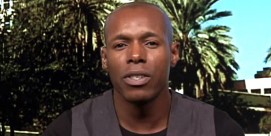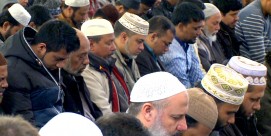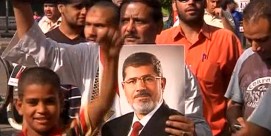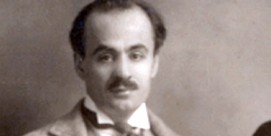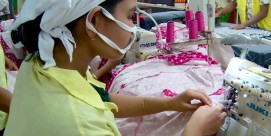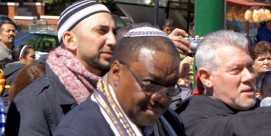“I think at the core of the anger, the root of it was sadness. The verdict really said to young African American males that you don’t matter and so that sadness and that continued rejection by society then led to the anger that then led to some of the behavior we saw in the communities,” says Rev. Romal Tune, founder of Faith for Change. More
In the wake of terrorist bombings by British-born Muslims in 2005, the British government set up an initiative called Prevent to engage with the Islamic community and to intervene before a person became radicalized. But many British Muslims feel that the policy amounts to religious profiling, and others have criticized Prevent for being misguided and ineffective. More
A conversation about the ongoing unrest in Egypt; bloodless surgeries for those with religious objections to blood transfusions; and the legacy of one of the best-selling poets of all time, Kahlil Gibran. More
“I think Egyptians just rose up and said we don’t like the direction Egypt is going in. It’s not because we don’t love Muslims – most of us are Muslims – but we don’t like the idea of an Islamist Egypt,” says Kate Seelye, senior vice president of the non-partisan Middle East Institute. More
“If there’s any way to avoid getting a blood transfusion, one is better off in general if they can avoid it,” says Dr. Abe Steinberger, a neurosurgeon at Englewood Hospital in New Jersey. More
The best-selling poet “helped present an appealing mystical idea of the wisdom of the East. He was someone who helped humanize and popularize Eastern thought,” says literary critic Liesl Schillinger. More
Worker justice in Bangladesh’s garment industry in the wake of the deadly April factory collapse; Inner City Muslim Action Network in Chicago and its mission of social justice; and Heartbeat, a band of young Israeli and Palestinian musicians More
“Only a couple of months ago, if you asked a garment industry owner what do you think of a union, they will say no, no unions,” says Fazle Abed of the Bangladesh Rural Affairs Committee. “But now many of them are saying yes, maybe the union is something we have to accept.” More
“Do I believe there’s a problem with some sectors of the community that are vulnerable and susceptible to violence? Absolutely. I wouldn’t deny that…The largest antidote, cure if you will, to any concern about radicalization and violence associated with it is meaningful, critical engagement.” More
Religion & Ethics NewsWeekly
X


